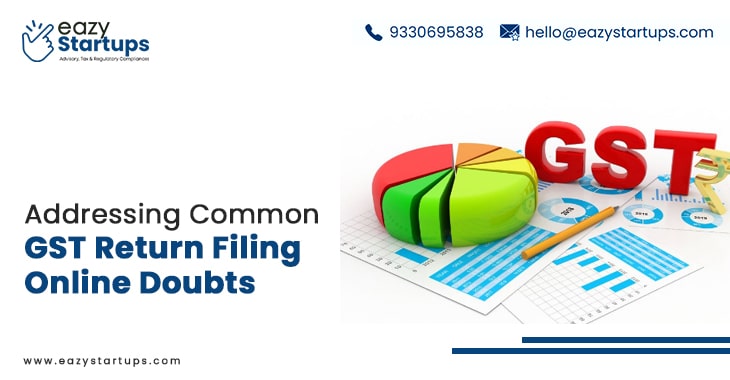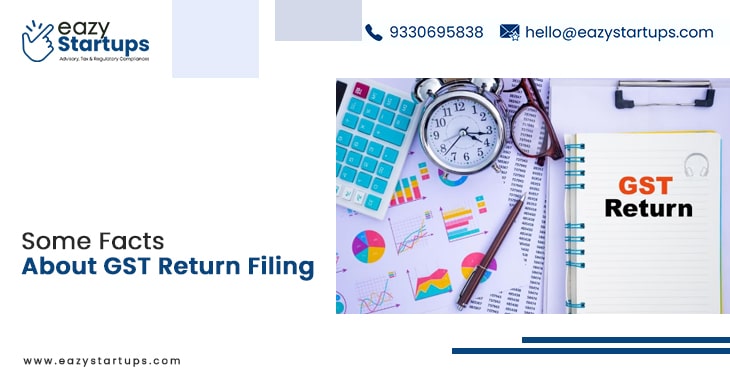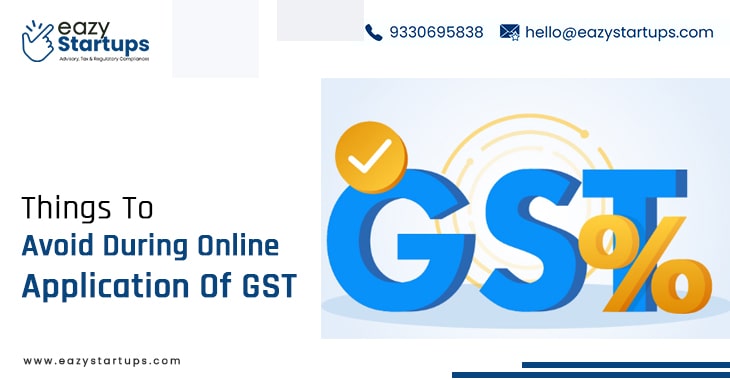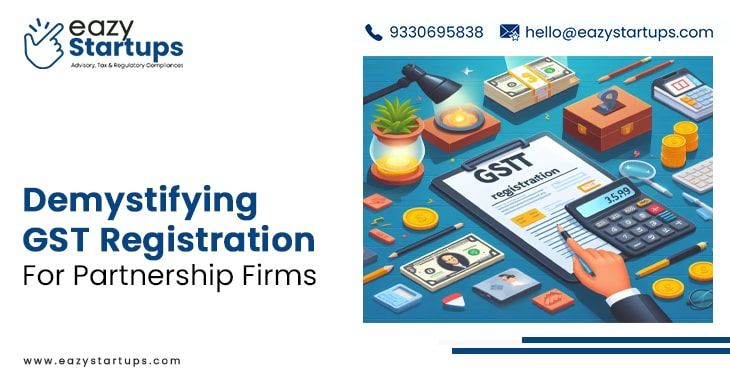Navigating the intricacies of GST Return Filing Online can be a daunting task for many entrepreneurs and business owners. At Eazy Startups, we understand the challenges that come with GST compliance and provide guidance and support every step of the way. In this blog, we’ll address some of the most common doubts that arise when filing GST returns online, offering clarity and insight to help you streamline the process. Whether you’re a seasoned entrepreneur or just starting out, Eazy Startups is here to simplify your GST Apply and GST Return Filing journey with ease.
- Which GST Returns Need to be Filed Online?
- How to Register for GST Return Filing Online?
- What Documents are Required for GST Return Filing Online?
- What are the Penalties for Late Filing of GST Returns?
- Can I File GST Returns Online Myself, or Do I Need Professional Help?
Which GST Returns Need to be Filed Online?
Several types of GST returns need to be filed online, including GSTR-1 for outward supplies, GSTR-3B for monthly summary returns, and GSTR-9 for annual returns. The specific returns required depend on the nature and turnover of your business. At Eazy Startups, our experts help you determine which returns are applicable to your business and ensure timely filing.
How to Register for GST Return Filing Online?
To register for GST Return Filing Online, businesses must first obtain a GST registration. Once registered, they can log in to the GST portal using their credentials and navigate to the ‘Returns’ section to file their returns. Our team at Eazy Startups assists businesses with the GST registration process and provides step-by-step guidance on filing returns online.
What Documents are Required for GST Return Filing Online?
The documents required for GST Return Filing Online vary depending on the type of return being filed. Generally, businesses need to maintain records of invoices, purchase orders, tax invoices, and other relevant documents to support their tax reporting. Our experts at Eazy Startups help businesses organize and maintain the necessary documents for GST compliance.
What are the Penalties for Late Filing of GST Returns?
Late filing of GST returns can attract penalties and interest charges, which can accumulate over time and impact your business’s finances. To avoid penalties, it’s essential to file your returns on time and ensure compliance with GST regulations. Eazy Startups provides timely reminders and alerts to help businesses meet their filing deadlines and avoid unnecessary penalties.
Can I File GST Returns Online Myself, or Do I Need Professional Help?
While it’s possible to file GST returns online independently, many businesses choose to seek professional help to ensure accuracy and compliance. Working with experts like Eazy Startups can save you time and effort, reduce the risk of errors, and provide peace of mind knowing that your returns are filed correctly. Our team offers personalized assistance and guidance tailored to your business needs.
Bottom Line
As you navigate the complexities of GST Return Filing, remember that you don’t have to do it alone. Eazy Startups is here to provide the guidance and support you need to streamline the process and ensure compliance with ease. Whether you’re a small business owner or a large enterprise, our team of experts is committed to simplifying your GST journey and helping you achieve success. Contact Eazy Startups today to learn more about our GST Apply and GST Return Filing Online services discover how we can support your business growth.






Recent Comments